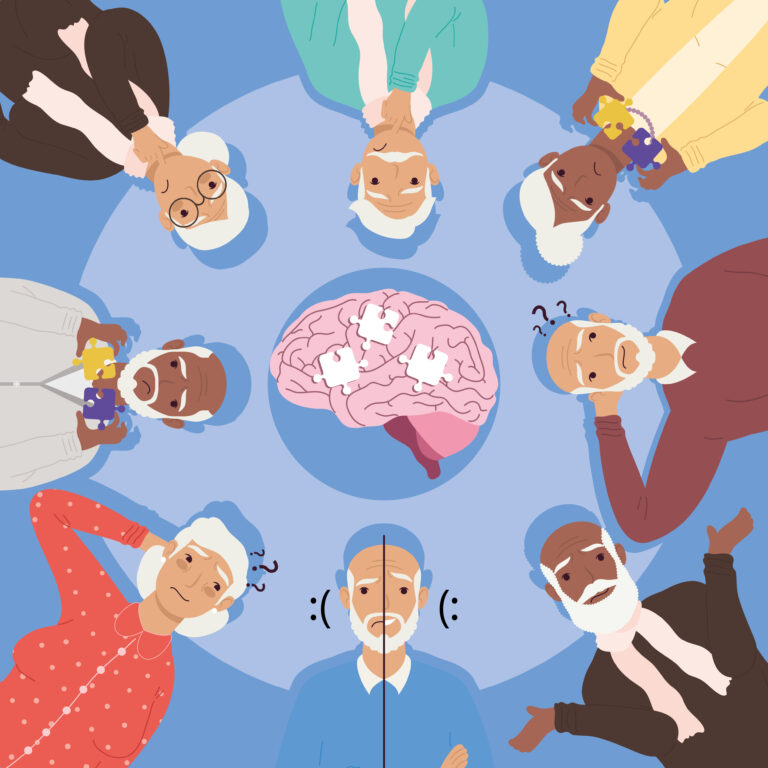As we age, our mental faculties begin to decline. This is a natural part of growing old and is often accompanied by a decline in decision-making abilities. However, for individuals with dementia, this decline can be much more severe and have a significant impact on their daily lives.
Dementia is a term that covers a range of conditions that affect the brain, including Alzheimer’s disease, vascular dementia, and Lewy body dementia. These conditions are progressive, meaning they get worse over time, and are characterized by a decline in cognitive abilities such as memory, language, and problem-solving skills.
Decision-making is an essential aspect of our daily lives. From choosing what to eat for breakfast to making important financial and healthcare decisions, our ability to make decisions impacts every aspect of our lives. However, as dementia progresses, individuals may experience changes in their decision-making abilities that can be challenging for both them and their caregivers to navigate.
So, how exactly does dementia affect decision-making? Let’s explore this in more detail.
Decline in Cognitive Abilities
Dementia primarily affects the parts of the brain responsible for cognitive functions such as memory, language, and executive function. As these areas of the brain deteriorate, individuals with dementia may struggle to process information, remember details, and think critically.
This decline in cognitive abilities can significantly impact decision-making. For example, a person with dementia may have trouble remembering important details or understanding complex information, making it challenging to make informed decisions. They may also struggle with problem-solving and have difficulty considering the consequences of their choices.
Changes in Personality
Dementia can also cause changes in an individual’s personality and behavior. This is due to the damage to certain areas of the brain responsible for regulating emotions and impulses. As a result, individuals with dementia may become more impulsive, irritable, or apathetic.
These changes in personality can make it challenging to make decisions as individuals may act impulsively or become resistant to outside input. For example, they may refuse to go to the doctor or take necessary medication, even if it is in their best interest.
Loss of Independence
One of the most challenging aspects of dementia for individuals and their families is the loss of independence. As the disease progresses, individuals may become increasingly reliant on others for decision-making and daily tasks.
This can be difficult for individuals who have always been independent and may struggle with feelings of frustration, anger, or helplessness. The loss of autonomy can also lead to depression and withdrawal, further impacting decision-making abilities.
Tips for Supporting Decision-Making in Dementia Patients
While dementia can significantly affect decision-making abilities, there are ways to support individuals with the disease in making important choices. Here are some tips for caregivers and family members:
1. Simplify Information: When presenting information or asking for a decision, keep it simple and easy to understand. Use clear and concise language, avoid complex terms, and provide visual aids when possible.
2. Allow Extra Time: Individuals with dementia may need more time to process information and make decisions. Be patient and give them the time they need to make choices.
3. Offer Choices: Giving individuals a sense of control can help maintain their dignity and self-esteem. Offer them choices when appropriate, such as what to wear or what to eat for dinner.
4. Involve Them in Decision-Making: Whenever possible, involve the individual in decision-making. This not only gives them a sense of control but also allows them to feel valued and respected.
5. Seek Professional Help: If you are struggling to make decisions on behalf of a loved one with dementia, seek guidance from a healthcare professional. They can help you understand your loved one’s cognitive abilities and provide support and resources.
In conclusion, dementia can have a significant impact on decision-making abilities due to its effects on cognitive function, personality changes, and loss of independence. However, with patience, understanding, and support, individuals with dementia can still be involved in decision-making and maintain a sense of autonomy. If you are caring for someone with dementia, remember to prioritize their dignity and respect in all decision-making situations.





